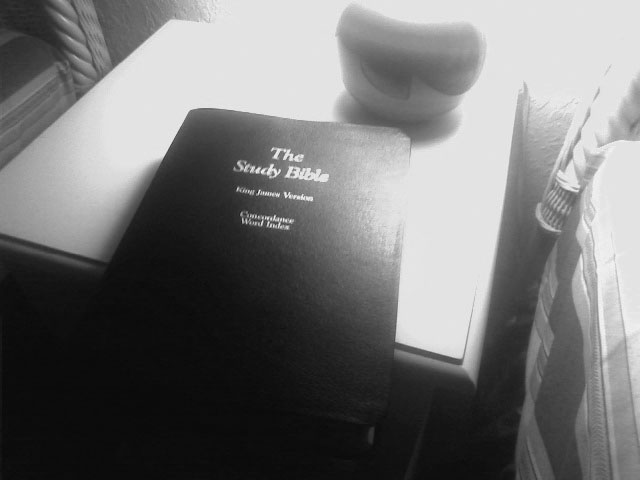A good friend of mine, whom I had discussed the Sabbath with some time ago sent me an article entitle “Lesson 13: Sabbath Reforms (August 25, 2013)” from International Bible Studies. In the article, the author states discusses the reforms of Nehemiah and in his address of the Sabbath came to the conclusion that the principle of the Sabbath still exists but the literal day is no longer binding and he seems to suggest that to consider it binding for all Christians would be “legalistic”. After thoroughly reading and annotating this lesson I am inclined to agree with the author on many points that were made during the lesson, while disagreeing with the final position taken on the binding nature of the Sabbath.

Doctrinal
Quitters never win! If God will not cast us out or forsake us, why give up before He does? If, as long as we are sincere, he will keep taking us back, why shouldn’t we keep coming!? Through these 9 steps of progression the Holy Spirit works on in us, we complete the process of salvation (it only begins at Baptism) and we’re reconciled to God!
Q. Can you please explain Romans 7:23? But I see another law in my members, warring against the law of my mind, and bringing me into captivity to the law of sin which is in my members. (Rom 7:23)
How can we know that evil spirits are truly behind those who talk to the dead? Could it be that God just doesn’t like people to talk to the dead for other reasons? When people consult familiar spirits, they aren’t really talking to the spirits of their dead loved ones, relatives, friends, etc. They are contacting demons that impersonate these individuals. Satan and his demons are posing as angels of light and manifestations of people’s dead friends and relatives.
What do the scriptures tell us about how to keep the Sabbath? When we examine the Bible texts, there is an abundance of information that we can glean. Aside from the specific information given by the texts, we can also look at the Israelite examples, the example of Jesus, and apostolic examples.
Q. “Ok, so if God created all things and all things are created for glory of God, why did He create sin? Just wondering because I don't get it.”
What does Peter mean by “Put off this my tabernacle”? Paul uses the term “put on” as if describing clothing to describe what happens at the resurrection. But notice that he doesn’t describe it as an even that takes place immediately at death. Instead, he describes it as an event that takes place at the end of time when the trumpet of God sounds. It is a simultaneous resurrection of those who died in Christ and all believers “shall be changed”. If what is corruptible must put on incorruption, it implies that incorruption is “put on” while corruption is “put off”. Immortality is “put on” while mortality is “put off”. The clothing analogy or metaphor seems to describe the nature of death and a future resurrection in Christ at the end of time. Martha also had this understanding of when the Resurrection would take place...
An interesting translation of Saturday in other languages… What’s really interesting is that “Saturday” by that name, came about from Pagan Rome. It means Saturn’s Day. It replaced the word original name (Sabbath) of the Seventh day but yet we can still see where that name remains.
With so much speculation about the Mark of the Beast, I’ve come across differing opinions as to what this mark actually means and what it will be. Some of the most common views are that the mark is a computer chip, a physical mark, or a tattoo placed in either the hand or the forehead. However, does this viewpoint really coincide with what the Bible teaches? When one looks up the word used for “mark” in “Mark of the Beast” many feel that it must be a tattoo and argue that the Bible teaches and warns us against piercings. While it is indeed true that Christians should not tattoo themselves, the Mark of the Beast is more complicated than a tattoo. The following is evidence that suggests why the Mark of the Beast could not be a physical mark, though physical marks may or may not be used in support of the authentic Mark of the Beast.
Is the Holy Spirit a person or an impersonal force? If a person, is He on the same level with God and Jesus? With so much trinitarian and anitrinitarian debate, is there any way to be sure? This study focuses on the person-hood of the Holy Spirit. Is the Holy Spirit a separate and distinct individual who can act independently? What does the Bible teach on this subject?
